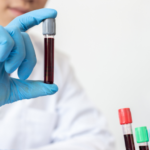Digital marketing services encompass a variety of online strategies designed to help businesses increase visibility, generate leads, and boost sales. These services include search engine optimization (SEO), pay-per-click advertising (PPC), social media marketing, email campaigns, and content creation. By leveraging these tools, companies can effectively reach their target audience and improve overall business performance.
Many digital marketing agencies offer full-service solutions tailored to different industry needs, combining technology with expertise to deliver measurable results. This approach allows businesses to optimize their marketing efforts across multiple channels, ensuring a cohesive and data-driven strategy.
Choosing the right mix of services depends on a company’s goals, budget, and target market. Understanding how each digital marketing service works helps businesses make informed decisions that enhance their online presence and drive growth.
Core Digital Marketing Services
Effective digital marketing relies on targeted strategies that improve visibility, drive traffic, and engage specific audiences through measurable actions. Businesses often prioritize channels that provide clear ROI and the ability to adapt based on real-time data.
Search Engine Optimization (SEO)
SEO focuses on improving a website’s ranking on search engines like Google to increase organic traffic. It involves optimizing content with relevant keywords, improving site structure, and ensuring fast loading times. Technical SEO tasks include fixing broken links and enhancing mobile usability.
SEO also emphasizes quality backlinks from reputable sites, which boost domain authority. Regularly updating content and monitoring analytics helps maintain and improve rankings. SEO results take time but deliver sustainable, cost-effective visibility by aligning with search intent.
Pay-Per-Click (PPC) Advertising
PPC allows businesses to place ads on platforms like Google Ads or Bing and pay only when users click. This method provides immediate visibility and precise targeting based on keywords, location, device, and demographics.
Campaigns are measured by key metrics such as click-through rate (CTR), cost per click (CPC), and conversion rate. PPC offers flexibility to adjust bids, budgets, and ads in real time to optimize performance and ROI. It is especially effective for short-term goals like product launches or promotions.
Social Media Marketing
Social media marketing builds brand awareness and engagement on platforms like Facebook, Instagram, LinkedIn, and Twitter. It combines organic posts and paid ads to reach target audiences with tailored messaging.
Content types vary from images and videos to stories and live streams, each suited to different platforms and goals. Social listening tools and analytics help track user interaction and sentiment. Consistency and audience understanding are critical for growing followers and driving conversions. Social media also supports customer service and community building.
Specialized and Emerging Marketing Solutions
Digital marketing continues to evolve with innovative approaches targeting specific audience segments and boosting engagement. These solutions leverage data, technology, and strategic partnerships to enhance brand visibility and drive measurable results.
Content Marketing
Content marketing focuses on creating and distributing valuable, relevant material to attract and engage a target audience. It prioritizes quality over quantity, often utilizing blog posts, videos, infographics, and case studies to educate potential customers.
Effective content marketing relies on SEO optimization to improve search engine rankings and increase organic traffic. It supports lead generation by nurturing prospects through informative content tailored to each stage of the buyer’s journey. Consistent content updates maintain audience interest and establish the brand as a trusted industry resource.
Email Marketing
Email marketing remains a crucial tool for direct communication and personalized outreach. It enables businesses to deliver targeted messages, promotions, and updates to segmented subscriber lists.
Successful campaigns depend on clear subject lines, compelling calls to action, and mobile-friendly designs. Automation improves efficiency by scheduling emails based on user behavior and preferences, enhancing open and conversion rates. Analytics track performance metrics like open rate, click-through rate, and ROI, helping refine strategies over time.
Influencer Partnerships
Influencer partnerships involve collaborating with individuals who have established credibility and a loyal following within a specific niche. These partnerships leverage the influencer’s reach and trust to promote products or services authentically.
Selecting the right influencer depends on audience alignment, engagement rates, and content style. Campaigns often include sponsored posts, product reviews, and social media takeovers. Measuring success involves tracking engagement, referral traffic, and sales attributed to the influencer’s efforts, ensuring transparency and ROI.






